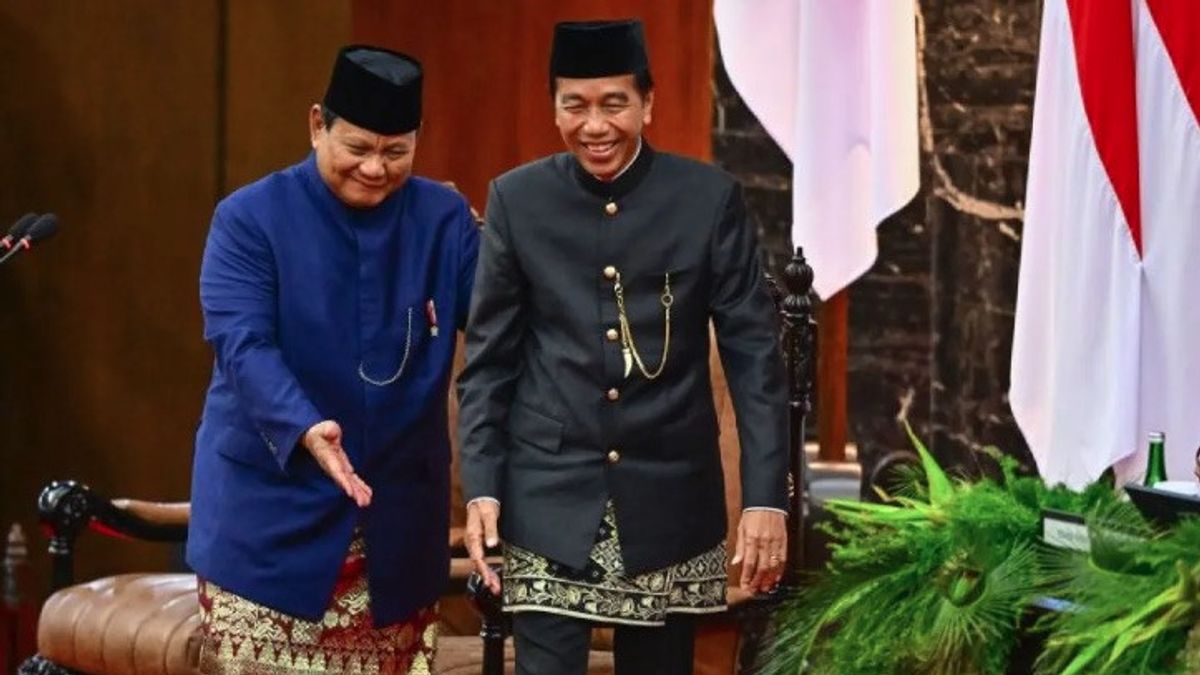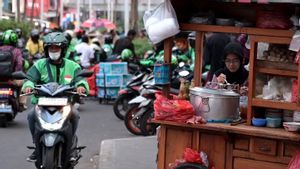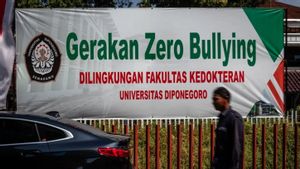JAKARTA Indonesia is entering a new chapter, marked by the inauguration of President Prabowo Subianto accompanied by Gibran Rakabuming Raka as Vice President of Indonesia for the period 2024-2029.
Both were inaugurated at the Plenary Session of the People's Consultative Assembly (MPR) at the Nusantara Building, Sunday (20/10/2024). The Prabowo and Gibran pair were inaugurated based on the General Election Commission (KPU) Decree Number 504 of 2024 concerning the Determination of Candidate Pairs for President and Vice President Elected in the 2024 General Election.
"By Allah, I swear that I will fulfill the obligations of the President of the Republic of Indonesia as well as possible and fairly as possible, uphold the Basic Law and carry out all laws and regulations as straight as possible and serve the homeland and nation," said Prabowo Subianto reading his oath.
"By Allah, I swear that I will fulfill the obligations of the Vice President of the Republic of Indonesia as well as possible and fairly as possible, uphold the Basic Law and carry out all laws and regulations in a straightforward manner and serve the homeland and nation," said the eldest son of former President Joko Widodo.
However, after being inaugurated yesterday, the Prabowo-Gibran pair was faced with many complex challenges. Starting from vulnerable domestic economic problems to corruption problems that seem endless.
Indonesia is facing a five-month deflation in a row which is proof of a decrease in people's purchasing power. This issue coincides with the high number of layoffs (PHK) and the middle class who have dropped caste into poor groups.
It has been a fairly massive discussion recently regarding the records of the Central Statistics Agency (BPS) that the middle class in Indonesia has experienced a gradual decline. In 2019, the Indonesian middle class was still at 57.33 million people, while in 2024 it was 47.85 million or decreased 9.48 million. Whereas in the same period, the upper class only rose 0.05 million people.
In the short term, the problem of purchasing power, layoffs, deflation, and lowering the middle class needs to be addressed immediately. One of them is with social safety networks that are prioritized for poor and middle class people who are threatened with lower classes.
Initute for Development of Economics and Finance (INDEF) economist Tauhid Ahmad said that apart from spreading social assistance, the Prabowo government must also be able to hold back layoffs in order to boost people's income by collaborating with the industry. Creating large jobs can be one of the current government's solutions.
"We have to give a red carpet to sectors or investments that absorb large labor. Distinguish incentives and policies, including how to build partnerships with foreign countries for investors," explained Tauhid.
Another opinion was expressed by the Executive Director of the Center of Economic and Law Studies (Celios) Bhima Yudhistira. He encouraged the Prabowo government to reduce the burden on society. You do this by not holding levies that burden the middle class.
Based on Bhima's records, currently there are 10 levies or taxes that are burdensome for the middle class in Indonesia, including Public Housing Savings (Tapera), luxury party liability insurance, BPJS Health contributions that want to be adjusted to the amount, up to 12 percent VAT.
The middle class has to be postponed. Look for other ways. If you want to encourage people's housing, it's not with Tapera, but with lower interest subsidies for KPRfloating or construction credit interest subsidies," Bhima told VOI.
Another problem that is the challenge of Prabowo-Gibran is law enforcement. Handling corruption cases in Indonesia has often seemed half-hearted, even the public considers it tends to be played for certain political interests.
In the Jokowi era, there were six ministers who were caught in a corruption case. Starting from the former Minister of Social Affairs, Idrus Marham, who was caught in the bribery case of the Riau-1 PLTU project and received bribes of around Rp. 2.23 billion. He was sentenced to three years in prison on April 23, 2019 and was released on September 11, 2020. Then Imam Nahrawi, the former Minister of Youth and Sports, who was caught in the case of granting a grant from the Ministry of Youth and Sports to KONI with a gratuity of R8.3 billion. Imam was sentenced to seven years in prison.
Third, there is the former Minister of Maritime Affairs and Fisheries, Edhy Prabowo, who was caught in the bribery case for the export license of Lobster Seeds (BBL) to exporters and received bribes of Rp. 25.7 billion. He was sentenced to five years in prison.
The fourth Juliari Batubara, who was caught in the COVID-19 social assistance bribery case in Jabodetabek and received bribes of around Rp32.4 billion while he was Minister of Social Affairs. Johnny G. Plate was sentenced to 15 years in prison, a fine of Rp1 billion, and a replacement money of Rp16 billion and 10 thousand US dollars for being involved in the corruption case of the 4G BTS Tower project and supporting infrastructure 1-5 Bakti Kominfo 2020-2022 which caused the state to lose Rp8 trillion.
Most recently there was Syahrul Yasin Limpo, caught in a corruption case at the Ministry of Agriculture related to extortion in positions, gratuities, and money laundering. SYL's behavior caused state losses of up to Rp44.5 billion and he was sentenced to 12 years in prison.
"Corruption remains a staple that haunts various sectors, ranging from mining, oil palm plantations, to governance of national education and health institutions that have not taken sides with the interests and safety of the people," said political observer Pieter C Zulkifli, quoted by Kompas.
SEE ALSO:
If Prabowo wants to realize Indonesia Gold's vision 2045, then strong and firm law enforcement must be a top priority. Pieter Zulkifli revealed several sectors that are the impact of corruptors to be resolved immediately, including systems and governance of educational institutions to national health.
"If the elites who play in these sectors are not crushed, don't expect Indonesia to achieve significant progress. Without firm steps, don't expect Indonesia to get out of the shackles of corruption that continues to haunt and even destroy the lives of the nation and state," he concluded.
The English, Chinese, Japanese, Arabic, and French versions are automatically generated by the AI. So there may still be inaccuracies in translating, please always see Indonesian as our main language. (system supported by DigitalSiber.id)














